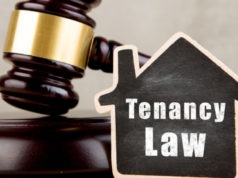Terms and conditions of property deals, where a financial institution is also involved apart from the buyer and the seller typical, are laid under a different legal document, legally known as a tripartite agreement.
A tripartite agreement has to be signed by these three parties — thus earning the document its name —when a buyer opts for a home loan to purchase a house in an under-construction project.
How do tripartite agreements work?
According to experts, tripartite agreements have been established with a view to assist buyers with acquiring finance from banks against the planned purchase of a home from a developer.
“As per the law, any developer who builds a housing society must enter into a written tripartite agreement with every buyer who has already purchased or is about to purchase a flat in the project,” explains Vijay Gupta, CMD, Orris Infrastructures. “This agreement clarifies the status of all the parties involved in real estate transactions, and keeps a watchful eye on all documents,” he says.
See also: 1 bhk and 2 bhk flats in Kamothe Navi Mumbai
Tripartite agreements should contain the particulars of the subject property and include an annex of all the original property documents. Also, tripartite agreements need to be relevantly stamped subject to the state where the property is located.
Details mentioned in tripartite agreements
Tripartite agreements have to carry all the information mentioned below:
- Names of the parties to the agreement
- The objective of the agreement
- Rights and remedies of the parties
Legal implications - The borrower’s perspective
The developer’s perspective - Bank/lender’s perspective
Agreed selling price - Date of possession
- Stages and the progress details of construction
- Interest rate as applicable
- Equal monthly installment (EMI) details
- Agreed common area amenities
- Penalty details if the booking is cancelled
The tripartite agreement should represent the developer or the seller stating that the property has a clear title. Furthermore, it should also mention that the developer has not entered into any new agreement for the sale property with any other party. For instance, the Maharashtra Ownership of Flats Act, 1963, requires full disclosure from the seller/developer to the buyer on all details as relevant to the purchased property. The tripartite agreement should also contain the developer’s liabilities to construct the building as per the approved plans and specifications sanctioned by the local authority.
Source: Housing News










